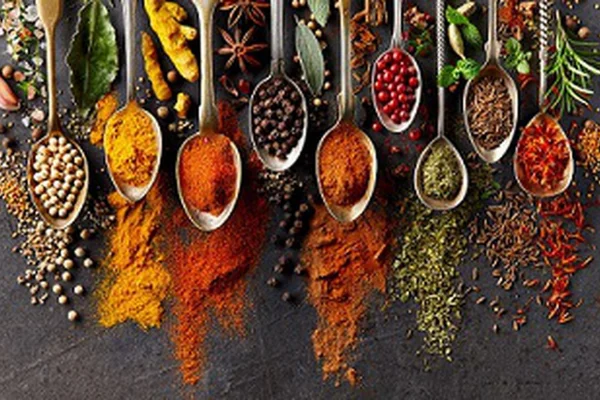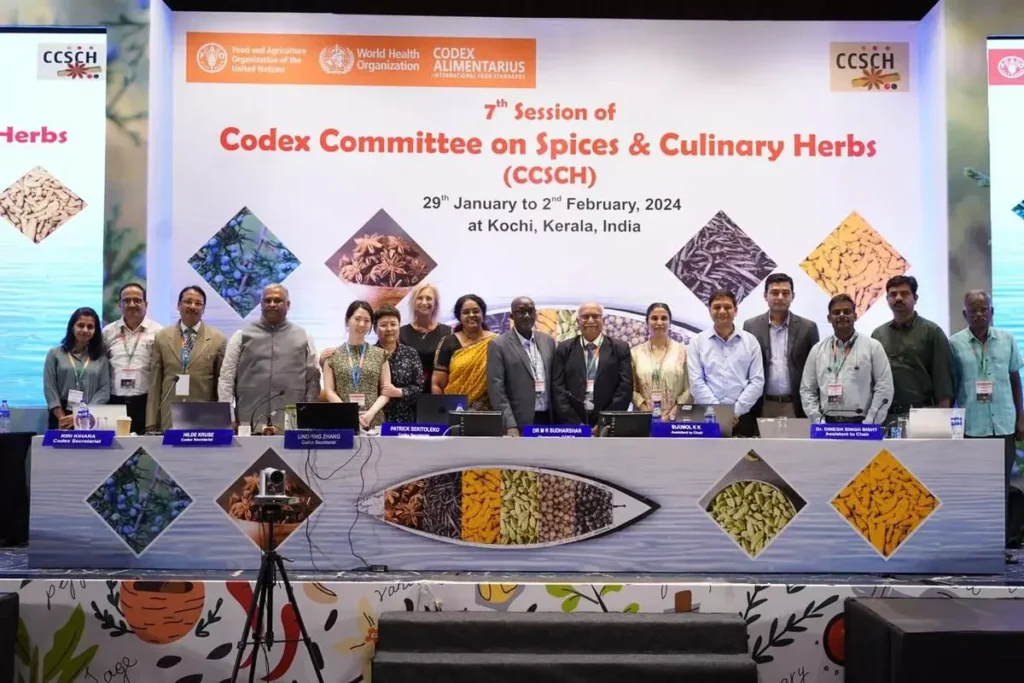Codex Committee on Spices recently held its 7th session in Kochi, Kerala, finalizing quality standards for five key spices.
Key highlights of the 7th session on CCSH:
- The quality standards for 5 spices, namely small cardamom, turmeric, juniper berry, allspice, and star anise were finalized.
- The first group standard for ‘spices derived from fruits and berries’, covering 3 spices, juniper berry, allspice and star anise were formulated.
- The draft standard for vanilla progressed to step 5, after which a round of scrutiny would follow for a complete discussion on the standardization.
- Proposals for development of Codex standards for Dried Coriander Seeds, Large Cardamom, Sweet Marjoram, and Cinnamon were accepted by the committee.
- The electronic working groups (EWGs) would undergo multinational consultation for standardization based on scientific evidence, until next session.
About Codex Committee on Spices and Culinary Herbs (CCSCH):
- It was established as one of the Commodity Committees under the Codex Alimentarius Commission (CAC) in 2013.
- India has been hosting this Committee since its inception in 2013.
- The Spices Board India serves as the secretariat that organizes the Committee’s sessions.
About Codex Alimentarius Commission:
- It is an intergovernmental body jointly established by FAO (Food and Agriculture Organization) and WHO (World Health organization).
- It is based in Rome, Italy, and consists of 189 member countries.
- Membership of the Commission is open to all Member Nations and Associate Members of FAO and WHO, who are interested in international food standards.
- The Commission meets in regular sessions once a year, alternating between Geneva and Rome.
- The Funding for this program is received through the regular budgets of WHO and FAO.
- The standards of CAC are recognized by the WTO (World Trade Organization) as international reference points for trade disputes on food safety and consumer protection.
- The standards developed by the Committees under the CAC are voluntary in nature and can be used by members as reference standards to align their national standards.
- The food standards development work is assisted by its Executive Committee, subsidiary bodies like Commodity Committees, Coordinating Committees, and Task Forces.
Ref: Source
| UPSC IAS Preparation Resources | |
| Current Affairs Analysis | Topperspedia |
| GS Shots | Simply Explained |
| Daily Flash Cards | Daily Quiz |



